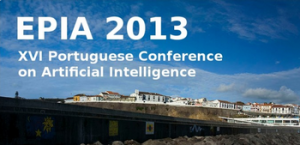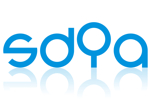18th Ibero-American Conference on Artificial Intelligence
Iberamia’2024
Montevideo, Uruguay
November 13-15th, 2024
https://iberamia2024.iberamia.org Contact: iberamia2024@iberamia.org
Iberamia’2024, the 18th Ibero-American Conference on Artificial Intelligence, will be held in Montevideo (Uruguay) on November 13-15th, 2024, organized by the Facultad de Ingeniería de la Universidad de la República.
IBERAMIA’2024 is the 18th edition of the Ibero-American Conference on Artificial Intelligence, a leading symposium where the Ibero-American AI community comes together to share research results and experiences with researchers in Artificial Intelligence from all over the world. The main technical program will consist of invited talks by leading scientists in the area, presentations of technical papers, orally and as posters, as well as system demonstrations. Satellite events organized and occurring together with IBERAMIA’24 include a Doctoral and Master Consortium (SIMDIA), workshops and tutorials. Paving the way to these events a pre-conference program will take place distributed through time up to November 2024, consisting on a series of open online seminars on IberamiaChannel.
Submission Topics
IBERAMIA 2024 welcomes submissions on all AI topics, as well as cross cutting work in related areas. We encourage submissions of research that reaches across technical areas or addresses integrated capabilities, as well as application of AI techniques for social good, such as sustainability, health care, education, transportation, industry, security, manufacturing and commerce.
Main topics may include but are not limited to the following:
* AI Engineering & Applications
* Agent technology. Multi-Agent Systems
* Ambient intelligence. Intelligence of things
* AI Applications and Technology Transfer
* AI in Education. Intelligent Tutoring Systems
* Bio-inspired AI
* Computational creativity
* Computational Intelligence, Soft Computing, Cognitive Systems, Cognitive Modeling
* Computer vision, Robotics
* Game Theory and Interactive Entertainment
* Human Aspects in AI, Affective Computing. Intelligent Human-computer interaction
* Knowledge Engineering. Knowledge Representation. Reasoning. Argumentation
* Machine Learning, Deep Learning, Big Data, Data Mining, Pattern recognition, Generative models
* Natural Language Processing, Conversational AI, Prompt Engineering
* Planning and Scheduling, Heuristics and Metaheuristics
* Social impact of AI, Ethics and AI, Sustainability and AI, Trustworthy and Explainable AI, AI for social good
Paper Submission Guidelines
* Papers must be written in English, in the Springer LNCS format, and must not exceed 12 pages, including all tables, figures (https://www.springer.com/gp/computer-science/lncs/conference-proceedings-guidelines). Submissions over twelve pages will be rejected without review.
* Papers must be submitted through the EquinOCS Conference System: (https://equinocs.springernature.com/service/IBERAMIA2024)
Authors should choose the topic or topics above that are most related to the submitted paper. All submissions will go through a double blind peer review process by Program Committee members on the basis of their originality, relevance, significance, technical soundness, quality and clarity. Thus, author names and affiliations must be omitted from the submission, using instead the unique tracking number assigned by the conference system at the time of submission. In addition, self?references in the text, like «in [14] we prove that» should be avoided, using instead references such as «in [14] has been proved that».
All papers must be original and not simultaneously submitted to another journal or conference.
Conference Registration and Attendance
At least one author is required to register for the conference and should be available to present the paper. We encourage all authors to attend if possible.
Best paper Award
A “Best Paper Award” will be given to the authors of the best paper, as judged by the Best Paper Award Selection Committee. There will also be the “Best Paper Presentation Award” selected from the audience feedback collected during the IBERAMIA 2024.
Publication
The Proceedings of IBERAMIA’2024 will be published in Springer «Advances in Artificial Intelligence», LNCS/LNAI series.
Journal Opportunities
A select set of top-rated papers will be nominated for fast track review at participating journals, including AI Communications, Progress in Artificial Intelligence, Inteligencia Artificial, and other international journals (all of them indexed by Scopus, JCR, etc.).
PhD and Master Theses Contest
The Second Ibero-American Symposium on Masters and Doctorates in Artificial Intelligence (SIMDIA’2023) will be held as a pre-conference activity on November 9-10, 2023. In this event awards will be given to the best PhD and MSc theses.
Pre-events for IBERAMIA’2024
As pre-events of IBERAMIA’2024, a series of open access conferences will be held through our IberamiaChannel (https://iberamiachannel.iberamia.org/), conducted by relevant researchers in the area
Questions and Suggestions
Please send all enquiries and suggestions about the technical program to the IBERAMIA-2024 Program Chair, at the email address pc-chair@iberamia.org
IMPORTANT DATES
Paper submission deadline: May 26th, 2024
Notification: July 19th, 2024
Camera ready papers: July 28th, 2024
Conference dates: November 13-15th, 2024


 O SDIA 2013 – Simpósio Doutoral em Inteligência Artificial, é a quarta edição deste Evento APPIA, que se realizará como evento associado ao Encontro Português de Inteligência Artificial, a ter lugar, em 2013, em Lisboa.
O SDIA 2013 – Simpósio Doutoral em Inteligência Artificial, é a quarta edição deste Evento APPIA, que se realizará como evento associado ao Encontro Português de Inteligência Artificial, a ter lugar, em 2013, em Lisboa.